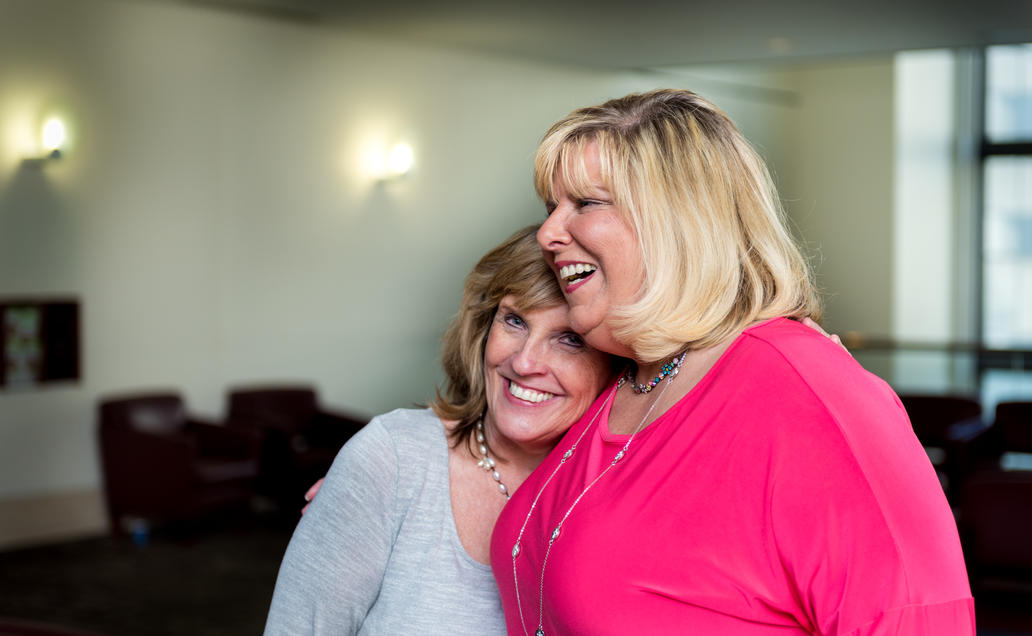Many people find that support groups help them cope with the day-to-day realities of having Parkinson's disease. The opportunity to swap stories and share resources can be truly therapeutic.
Finding the Right Group
If you're feeling frustrated about life with Parkinson's disease, being part of a support group can be one of the best ways to reduce stress and connect with others who can relate to your experience. Care partners and family members also benefit from sharing questions and concerns with like-minded others.
Many resources are available to help you find a support group, including your neurologist or physician (or a member of his or her office staff), local hospitals (community outreach or similar services), community calendars in local newspapers, and websites of national Parkinson's disease organizations.
Not all support groups are right for everyone, however. For starters, they come in different formats, ranging from large, formal meetings to smaller "living-room" get-togethers. If you don't like the first group you find, it's worth looking for one that suits you better. If you can't find a group you like in your area, consider starting one. If you are unsatisfied with the available options, you're probably not the only one feeling that way.
Starting a Support Group
Some tips to help you start your own support group:
Choose the group's target audience.
Is it just for people with Parkinson's, or are care partners and family members invited as well? If you live in a larger city, you can consider gearing the meeting toward a more specific group, such as people with early-onset Parkinson's disease.
Decide on a location and meeting time.
Churches, community centers, libraries and other spaces with meeting rooms are great choices. Because members may want to share personal stories, more public spaces like coffee shops and restaurants may not be ideal. You can also decide if your group should meet monthly, twice a month or even weekly.
Figure out a format for the meetings. Will there be one "leader" who facilitates discussions or will members take turns hosting the meeting? From time to time, try to schedule guest speakers such as area neurologists and allied care professionals, like physical therapists and nutritionists. If there are exercise groups for people with Parkinson's in your area, invite them to give a demonstration and share their services. Of course, leave plenty of time for simply chatting about life with Parkinson's disease, too.
Spread the word. Ask your doctor if you can share flyers in the office, and let your local hospitals know about the group, too. Bring flyers to libraries, coffee shops and other community spaces. If you're tech-savvy, start a Facebook group or page, or make a basic website. These are also good ways to keep in touch with members.
Share resources at your meeting. If the meeting has a theme, such as exercise or nutrition, print out a resource sheet with takeaway points and websites for further information. You can also share interesting articles or information about participating in clinical research.
Consider joining or starting an online support group. If you live in a very small town or your schedule is too busy to attend meetings, an online support group could help you connect.
Online Support Groups
Websites, internet groups and forums serve as online support for many patients. They can be informative and inspiring, and often alleviate the feeling of isolation that can make life with Parkinson's more difficult. It's often possible to add to the conversation at whatever time works for you, allowing you to participate if you have a busy schedule.
Some sources of online support groups:
- The Parkinson’s Buddy Network is an online community of people impacted by Parkinson’s designed to help you make meaningful connections, engage in important dialogue, find useful resources and build long-lasting relationships.
- Caring.com hosts a Parkinson's support group.
- HealthUnlocked has Parkinson's community pages.
- Smart Patients Parkinson's Disease Community offers self-care tips.
- PatientsLikeMe has a Parkinson's forum.
- Facebook groups are a popular venue for conversation. Ask your physician or local support group if they know any you may wish to join, or start your own.
- Websites of national or local Parkinson's disease organizations may have other online support group resources.
Other Places to Find Support
Support groups aren't for everyone. If they don't appeal to you, there's no need to force it. If you were involved in community, religious or hobby-based organizations in your life before Parkinson's, keep up those ties and friendships. In addition, educating yourself about Parkinson's, and getting involved with local or national Parkinson's organizations, can be ways to meet people who share some experiences with you without joining a support group.

Find Support in the Parkinson’s Buddy Network
Create connections and find community online in the Parkinson’s Buddy Network. We’re building an online support system, one buddy at a time.